|
Archeology is not just digging in the dirt. Archeologists study the past, solve mysteries, and uncover the stories of objects left behind by earlier people and cultures. Archeologists are anthropologists, meaning they study people, but they are not geologists (who study rocks and minerals) or paleontologists (who study ancient reptiles or fossils). Archeology is one of many tools like oral or written histories that park staff use to unearth Lake Clark's history.
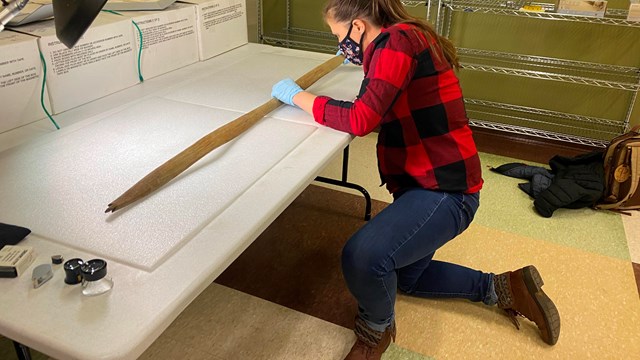
A Recent Park Discovery!
In 2021, NPS employees found a carved wooden hunting bow in the waters of a lake, follow along to learn more about this fascinating find. 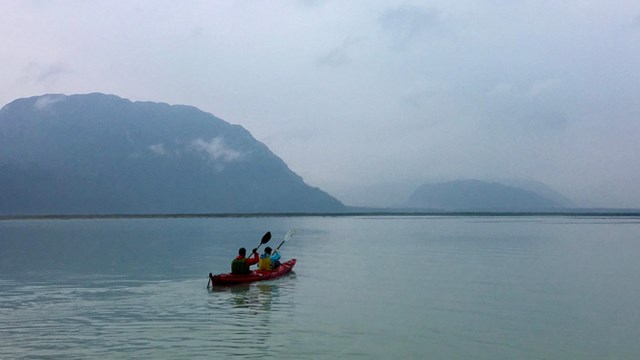
West Cook Inlet Coastal Archeology
By conducting research, archeological evidence lends understanding to past traditions and its legacy. 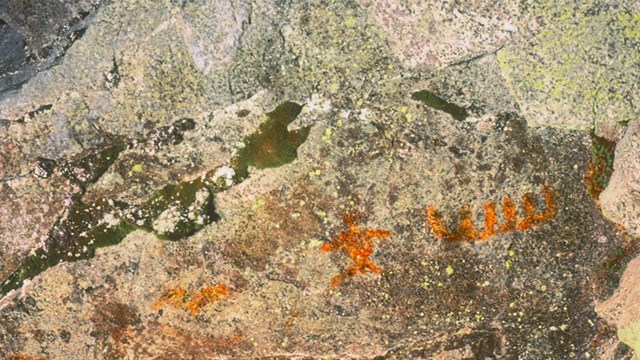
Pictographs on the Cook Inlet Coast
People have utilized the shoreline along west Cook Inlet within Lake Clark National Park and Preserve for at least 3500 years. 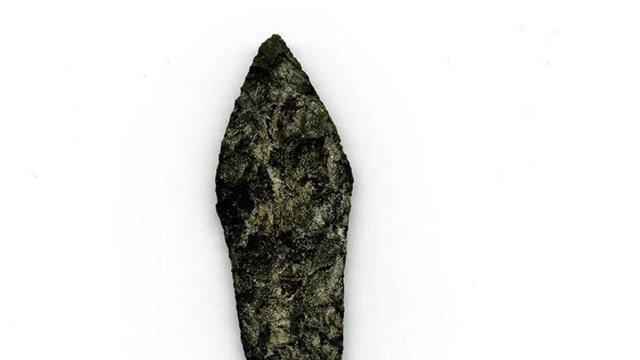
Why Archeologists Value Context
Context give archeologists a more complete picture of the past. 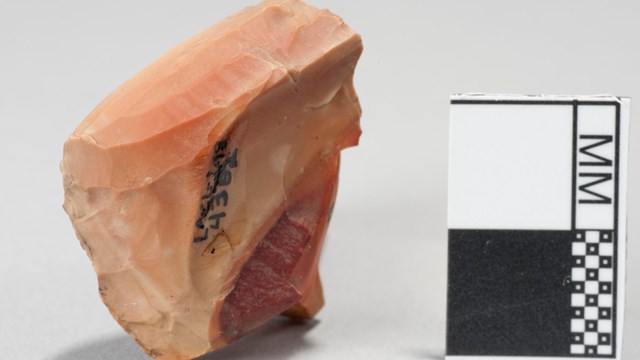
Is This the Park's Oldest Artifact?
Is the the oldest object in the park collections? Was it found at the oldest archaeological site in the park? 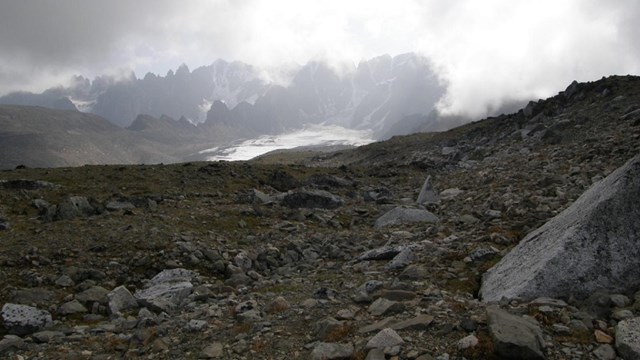
Ice Patch Archeology
High elevation areas where ice patches form are not frequented by a significant number of people today, but what about in the past? 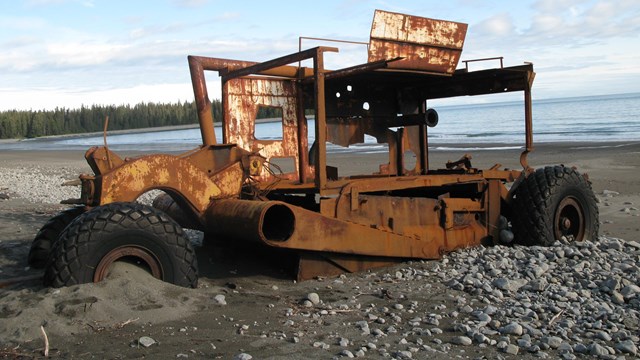
So You Found a Site or Artifact...
What to do when you find an archeological site or an artifact in the wild. 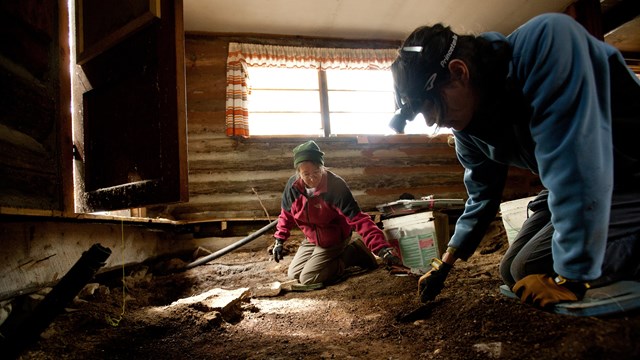
Preserving Archeological Sites and More
What park staff are doing to preserve archeological sites and cultural landscapes. |
Last updated: December 27, 2023
